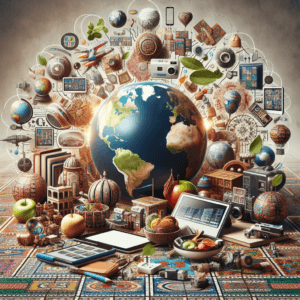Bridging Cultures Through Global Learning Initiatives
In an increasingly interconnected world, the importance of understanding and appreciating cultural diversity cannot be overstated. Global learning initiatives have become pivotal in fostering cross-cultural awareness and collaboration among individuals from various backgrounds. These initiatives provide a framework for educational institutions, organizations, and communities to engage with each other, promoting dialogue and collaboration that transcends geographic boundaries.
Global learning initiatives typically encompass a range of programs, including study abroad opportunities, virtual exchange platforms, collaborative projects, and cultural immersion experiences. By participating in these programs, individuals gain firsthand knowledge of different cultures, enhancing their ability to communicate and work with people from diverse backgrounds. This exposure is essential in cultivating empathy, respect, and an appreciation for the richness that cultural differences bring to society.
One of the notable benefits of these initiatives is their capacity to break down stereotypes and misconceptions. Participants often engage in meaningful discussions that challenge preconceived notions, allowing for a deeper understanding of various cultural practices, beliefs, and values. Through shared experiences and interactions, individuals can humanize those from different cultures, fostering a sense of solidarity and shared purpose.
Moreover, global learning initiatives emphasize collaboration and teamwork. In projects where individuals from multiple countries work together, the exchange of ideas and perspectives often leads to innovative solutions to common challenges. This collaborative spirit is especially important in addressing global issues such as climate change, public health crises, and social justice. By integrating diverse viewpoints, participants can approach problems with a more holistic understanding, which is crucial in today’s multifaceted world.
Educational institutions play a crucial role in implementing global learning initiatives. Universities and colleges are increasingly incorporating internationalization strategies into their curricula, providing students with opportunities to engage with peers around the globe. Partnerships between institutions from different countries further enhance these programs, allowing students to participate in joint research projects, share resources, and develop cross-cultural skills that are highly valued in the workforce.
Technology has also significantly advanced the accessibility of global learning initiatives. Virtual exchange programs enable students to connect with peers from disparate locations without the need for physical travel. These digital platforms not only broaden opportunities for interaction but also allow participants to engage in real-time discussions that promote mutual understanding. Additionally, the rise of online courses featuring international content offers students insights into global perspectives within their fields of study.
Community organizations are equally essential in supporting global learning initiatives. They often serve as intermediaries, creating spaces for cultural exchange through workshops, festivals, and dialogue sessions. These events foster local and global connections, encouraging community members to share their stories and learn from one another. By highlighting the contributions of diverse cultures, communities can cultivate an inclusive atmosphere where all voices are heard and valued.
The long-term impact of engaging in global learning initiatives is profound. Participants return to their home communities with heightened cultural competence and a greater sense of global citizenship. This transformation not only benefits individuals but also enriches communities and organizations through diverse perspectives and approaches.
In conclusion, global learning initiatives serve as powerful tools for bridging cultural divides and fostering inclusive environments. By promoting understanding, collaboration, and respect, these programs contribute to a more harmonious and interconnected world. As societies continue to evolve, prioritizing these initiatives will be vital in nurturing global citizens who are well-equipped to embrace diversity and tackle the challenges of the future.







